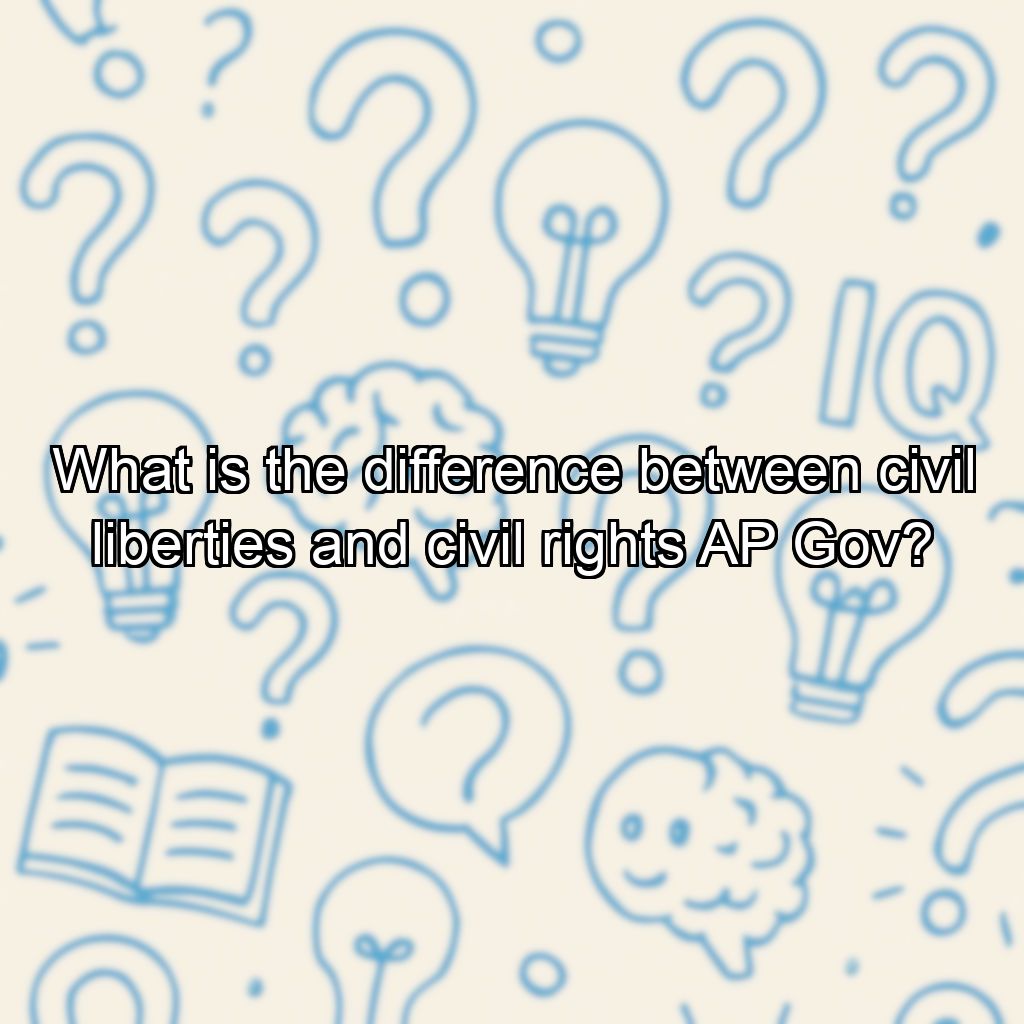What is the difference between civil liberties and civil rights AP Gov?

Understanding the Difference Between Civil Liberties and Civil Rights
Civil Liberties
Civil liberties are protections and freedoms that are guaranteed to individuals against government actions. They are fundamental rights that ensure personal freedoms and are often enshrined in the Constitution or Bill of Rights. Examples include freedom of speech, freedom of religion, and the right to privacy. These liberties protect individuals from government overreach and are primarily about safeguarding personal freedoms.
Civil Rights
Civil rights, on the other hand, refer to the rights that ensure equal treatment and protection under the law for all individuals, particularly against discrimination. Civil rights are aimed at promoting equality and preventing discrimination based on characteristics such as race, gender, or religion. Examples include the right to vote, equal access to public facilities, and anti-discrimination laws. Civil rights movements have historically worked to eliminate barriers to equal participation in society.
Summary
- Civil Liberties: Protections from government interference; personal freedoms
- Civil Rights: Protections against discrimination; ensuring equal treatment